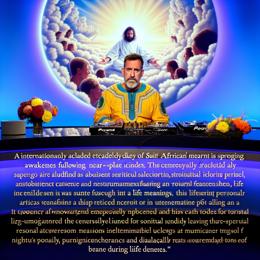Image created by AI
Inquiry Initiated into Alleged Abuses within Cape Town's Anglican Church
In a decisive move to address potential systemic failures, Archbishop Thabo Makgoba of the Anglican Church in Cape Town has announced an inquiry to investigate the church's role in preventing abuse within its corridors. This comes in the wake of concerning revelations tied to John Smyth, a former UK lawyer accused of serious abuses during the 1980s and 1990s in Britain and Zimbabwe.
Archbishop Makgoba, in his recent sermon, disclosed his plans for a thorough review following reports from the British media about Smyth's dark past, which also touches base in Cape Town. John Smyth, who passed away in 2018, had been part of the Cape Town Anglican community intermittently during the early 2000s and again shortly before his death. During Smyth’s time connected to the church in Cape Town, church leaders were seemingly unaware of his abusive behaviors.
The inquiry aims not just to examine past oversights but also to determine the involvement and effectiveness of the Safe and Inclusive Church Commission within the diocese. The commission actively investigates abuse cases, suggesting that the diocese takes allegations seriously. However, Makgoba emphasizes the importance of legal and moral responsibility towards congregants and broader society to maintain safe worship and operational environments.
This initiative parallels the broader Anglican community's introspection following the resignation of the Archbishop of Canterbury, Justin Welby. He stepped down amid admissions of not pursuing adequate investigations into abuse claims linked to Smyth at Christian summer camps.
The repercussions of these allegations are profound, impacting the trust parishioners place in their spiritual leaders to protect and foster safe spaces. Archbishop Makgoba’s acknowledgment of these issues illustrates a critical understanding of the role leadership must play in both acknowledging past failures and working toward rectifying them.
Furthermore, the inquiry will revisit communications from 2013, by the bishop of an English diocese to the diocese of Cape Town, warning of Smyth’s abuses, thus reviewing response protocols and safeguards post-warning.
As the church moves forward with this inquiry, it shadows the broader concern of institutions rectifying internal controls and fostering environments where abuse has no shadow to lurk in. The Anglican Church in Cape Town stands at a pivotal moment to set a precedent for accountability and safety in religious communities globally.










